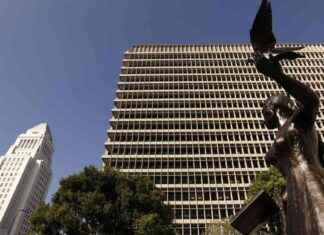Sign up for one of our email newsletters.
Updated 2 hours ago
Pennsylvanians might see changes in how they can buy hard liquor when lawmakers this spring start the annual state budget horse trading.
As Democratic Gov. Tom Wolf and Republican legislative leaders seek to consolidate government services instead of raising broad-based taxes to address budget shortfalls, the liquor code could again be a bargaining chip.
One proposal resurfacing is to authorize liquor “to-go” sales. Rep. Mike Reese, R-Mt. Pleasant, is seeking support for legislation to allow restaurant licensees to pay a fee for an additional permit to sell up to 3 liters of liquor.
Reese said his bill essentially mimics the wine to-go permits authorized last summer under Act 39, a law that liberalized wine sales and made sweeping changes to state liquor policies.
“That was the first step to getting more customer choice (and) more options for the residents in the commonwealth,” he said. “Now the next natural step is to allow them to sell spirits to-go.”
If approved, it would be the first time since Prohibition that private-sector businesses could sell bottles of hard liquor to consumers for off-premise consumption. Reese said a permit would cost $2,000, and the proposal could generate some revenue for the state, depending on how many establishments buy a permit.
The labor union that represents state-run liquor store clerks opposes the change, saying it'll lead to the demise of the state system and put thousands out of work.
“While it provides consumer convenience, it cannibalizes sales from a very profitable, stable, reliable revenue stream for the state,” said Wendell Young IV, president of the United Food and Commercial Workers Local 1776. “Further cannibalization would only further destroy a steady revenue stream.”
“It'll deepen the budget hole,” said Young, noting lawmakers should refrain from doing that during a budget crisis. He suggests lawmakers allow more time to see how the wine to-go option plays out.
Restaurant licenses aren't held only by eateries and hotels. Supermarkets that meet requirements — food and seating for 30 patrons and 400 square feet of licensed premises — have been able to sell beer and now wine with the additional permit.
The legislation could bring hard liquor sales to gas stations as well. A handful of Sheetz and Giant Eagle-operated Get-Go gas stations are now selling beer and wine, according to the Pennsylvania Liquor Control Board.
Opponents to liberalizing hard liquor sales have cautioned lawmakers against allowing gas stations to sell alcohol.
“I think it's about responsible business owners making responsible decisions, and the people purchasing it also making responsible decisions,” Reese said. “I think as long as you have the proper protections in place to make sure people are buying it properly and legally, I think it's fine.”
He believes gas stations are more likely to stick to selling beer and wine and little hard alcohol.
Kevin Zwick is a Tribune-Review staff writer. Reach him at 724-850-2856 or kzwick@tribweb.com.
Our editors found this article on this site using Google and regenerated it for our readers.






